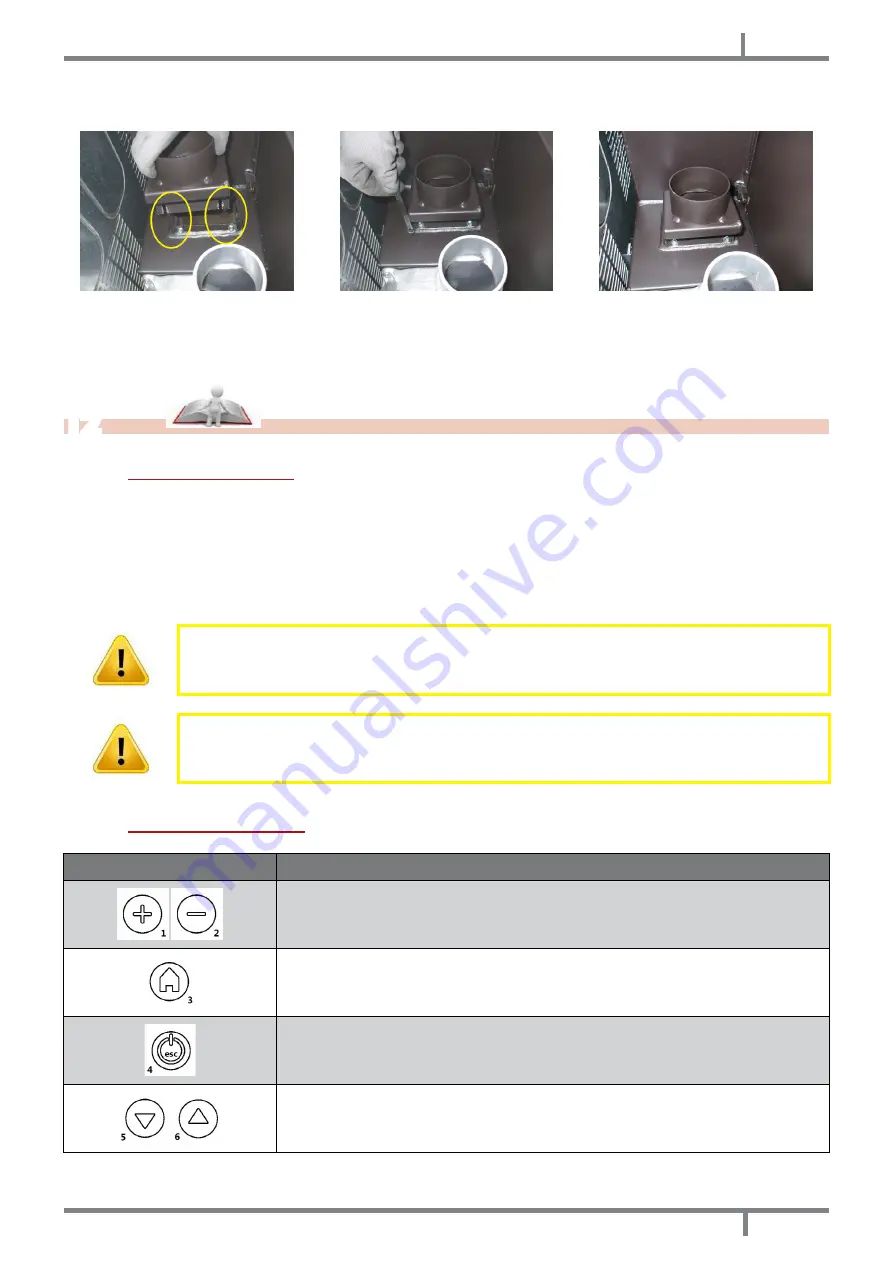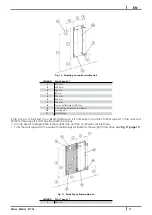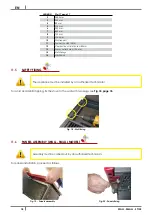
21
WALL - SMALL - STYLE
EN
•
Remove the upper left grid (see
).
•
).
•
Take the funnel for the canalization (see
Fig. 28 - Phase 4
Fig. 29 - Phase 5
Fig. 30 - Phase 6
•
Place the funnel for canalization (see
).
•
Tighten the screws (see
).
•
The stove is ready for canalizzation (see
12
USE
12.1
INTRODUCTION
To have the best performance with the lowest consumption please follow the here descripted instructions.
•
The lightning of the pellets occurs very easily if the installation is correct and if the chimney flue is efficient.
•
Switch on the stove at Power 1 for at least 2 hours in order to enable the materials which make up the boiler
and the fireplace to adjust the inner springing stress.
•
By using the stove the varnish inside the combustion chamber could be subjected to alterations. This
occurrence can be attributed to different reasons: an excessive stove overheating, the presence of chemical
agents in bad quality pellets, bad chimney draught, etc. Therefore varnish endurance in the combustion
chamber cannot be guarantee.
Oily plant waste and lacquers can cause smells and smoke during the first working hours: it
is advisable to ventilate the room because they could be noxious to people and animals.
Set values from 1 to 5 are defined by the manufacturer and they can be changed only by
an authorized technician.
12.2
CONTROL PANEL
PANEL ELEMENT
DESCRIPTION
P1 and P2: when in set temperature mode, they are useful to increase or decrease the
thermostat value from min. 6°C to max 40°C. Keeping pressed P2 key it is possible to see
the fume temperature at the exhaust. Both have programming functions.
P3: it enables to enter set temperature and User and Technician parameters menu.
P4: switching on and off, alarm reset and exit from programming.
P5 and P6: increase and decrease the calorific power from 1 to 5.
















































